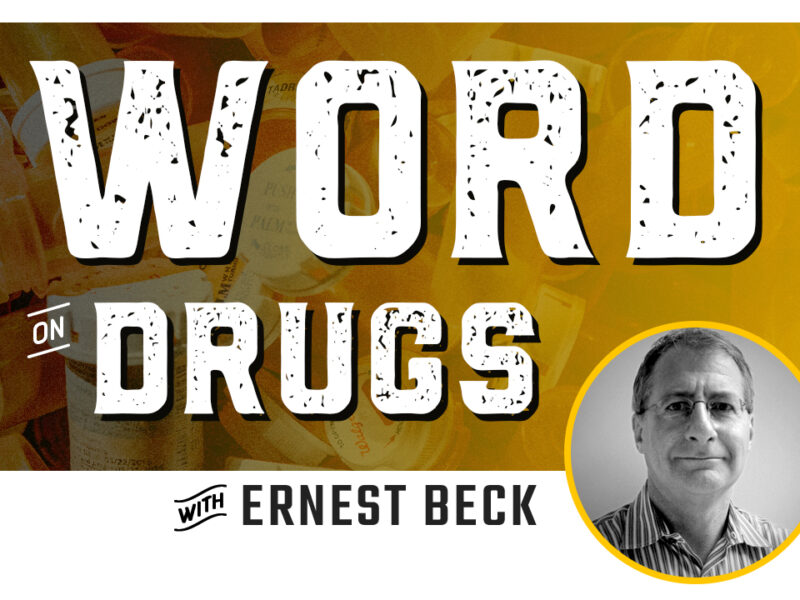The Word on Drugs: Medical Marijuana is Not a Panacea—Despite Pot Industry Claims
The drug is legal in 38 states, including in the Mountain West, but not Wyoming
- Published In: Other News & Features
- Last Updated: Nov 30, 2023

By Ernest Beck
Special to the Wyoming Truth
If you are struggling with symptoms related to AIDS, cancer or glaucoma and live in Colorado, medical marijuana might help. Ditto for severe pain and nausea and persistent muscle spasms, PTSD and Autism Spectrum Disorder—part of a laundry list of diseases that qualify for medical weed if your doctor “believes” it will relieve related symptoms, according to state guidelines.
With 38 states having legalized it as part of a wider movement to reform cannabis laws, more and more Americans are buying medical marijuana products from authorized dispensaries and bootleg dealers to address medical problems ranging from uncomfortable to chronic and debilitating. Sales in the U.S. are expected to reach $11.1 billion in 2023.
All types of cannabis are illegal in Wyoming. There are, however, regulated, adult-use medical marijuana programs in the Mountain West region, including Utah and Montana, as well as in South Dakota. While these states have residency requirements for obtaining medical marijuana, it puts the now-legal drug within reach of Wyoming.
Unfortunately for those seeking relief, many of the claims about medical marijuana’s effectiveness have yet to be robustly proven. Currently, there is scant independent research showing that it is suitable for most of the conditions listed by Colorado and other legal marijuana states. Also missing is data concerning dosages, possible side effects and the potential impact of long-term use, especially for individuals with age- or health-related vulnerabilities.
“Marijuana companies have done a good job of selling marijuana products with very little scientific foundation,” Dr. Kenneth Finn, a pain medicine specialist with a practice in Colorado Springs, Colorado, told me in a phone interview.
Finn, who served on a government task force for the amendment that legalized recreational marijuana, supports research into the possible use of weed for medical purposes. But he argues that the marijuana industry has gotten “a free pass to circumvent the same rigorous drug development and approval process” by the Food and Drug Administration (FDA) that all other drugs must go through.
Many users say it does, in fact, help them. And the FDA has approved three cannabis-derived drugs for targeted use to reduce epileptic seizures and nausea and vomiting caused by cancer chemotherapy. But the agency has not approved it to treat any disease or condition.
Yet cannabis companies hype medical pot as if it were a panacea for many health problems. Anxiety, for example, is one of the most common complaints that consumers ask about when they seek medical marijuana (several states allow its use for general anxiety disorder). Products with names such as Granddaddy Purple, Sour Diesel and Blue Dream promise to lower stress and “promote mindfulness.” However, the science shows it may not help—and could even make those symptoms worse in some people, especially if it contains high levels of the psychoactive component THC, as many such products do.
Another often-heard claim is that medical marijuana can reduce opioid use and overdoses, a tantalizing possibility at a time when opioid-related fatalities in the U.S. have reached a record 110,000 annually. An initial study in 2014 suggested a correlation between fewer opioid fatalities in legal marijuana states.
However, a 2019 Stanford University report found no such connection. As one of the authors put it, “If you think opening a bunch of [marijuana] dispensaries is going to reduce opioid deaths, you’ll be disappointed.”
What we know for sure about marijuana and its impact on human health is evolving. Legalization has led to increased funding for research to determine how pot works and whether it can be beneficial and safely used in a number of clinical settings. Breakthroughs could be on the horizon.
For the moment, though, we have to rely largely on anecdotal evidence from users. They will often say that smoking a joint or ingesting a pot product makes them feel less stressed out, helps them sleep or enhances well-being—and there’s no reason not to believe them. Yet, when Finn hears this from patients, his reaction is to say, “I’m fine with that, but you also need to understand the possible risks.”
Much could go wrong, including cannabis use disorder, a term used to define the continued use of marijuana despite significant negative impact on one’s life. An estimated 10% of users will become addicted, according to Yale Medical School.
Second, you don’t always know what you’re getting in a dispensary, because the “bud-tenders” who sell it are not physicians, pharmacists or medically trained professionals otherwise qualified to answer questions about serious medical conditions.
Finally, using medical marijuana might convince an individual to stop taking other proven, prescriptive medications, as studies indicate that patients consider medical weed to be a viable alternative to other drugs, according to the National Institutes of Health.
Expect the powerful cannabis industry to continue promoting medical marijuana as safe and reliable despite the lack of sound evidence. Invariably, more products will become available, along with dubious claims.
In my opinion, while there is no holding back the march of marijuana legalization, it is time for state regulators to step up and protect consumers.
“Close the loopholes,” Finn said. He advises implementing stricter standards for medical marijuana use, marketing, potency caps and product labeling and age requirements. Insist on making accurate information available on what a product might do—if that is at all possible—and equally important, the potential downsides.
Those struggling with serious diseases and conditions must not be scammed and given false hope that what they buy in a marijuana dispensary will miraculously make them better.
Ernest Beck writes about drug policy. He is the former communications lead for the Rosenthal Center for Addiction Studies in New York.













